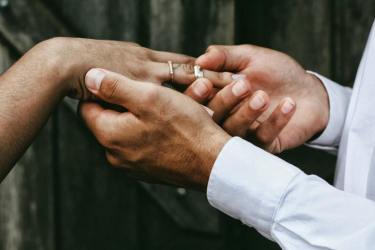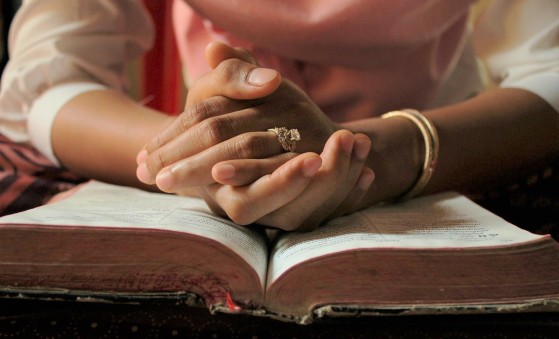
The Supreme Court on Monday, September 22, stayed the Madras High Court’s controversial ruling that declared marriage under the Indian Christian Marriage Act, 1872, constitutes automatic conversion to Christianity and results in loss of Scheduled Caste status.
A bench comprising Justices Vikram Nath and Prashant Kumar Mishra issued the stay order while hearing Special Leave Petition No. 26877/2025 filed by V Amudharani, Chairman of Theroor Town Panchayat, challenging the High Court’s decision that disqualified her from holding the SC-reserved post.
The legal battle originated when V Iyyappan challenged Amudharani’s eligibility for the chairman position, arguing that her marriage to a Christian man in 2005 at St. Antony’s Church in Kulasekaramputhoor under Christian rites had nullified her original status as a member of the Hindu Pallan community.
Justice L. Victoria Gowri of the Madras High Court had ruled that voluntary submission to Christian marriage rites, including publication of banns, automatically changes a person’s socio-legal identity. The court held that “once voluntarily submitting oneself for the conduct of marriage under the Indian Christian Marriage Act, 1872, would precisely mean that the marriage has been conducted between two persons who profess the Christian religion for the purposes of the aforesaid Act.”
The Madras HC emphasised that the Indian Christian Marriage Act does not permit civil interfaith marriages and that marrying under the Act effectively identifies both spouses as Christians for legal purposes. Justice Gowri’s bench noted that even without formal baptism, solemnising marriage under Christian law triggered a change in socio-legal identity.
Amudharani had contested the allegations, maintaining that she never converted to Christianity and continued following Hindu practices. However, the court disagreed, referring to the marriage register that showed Christian marriage rites, including publication of banns, were fulfilled.
The Division Bench, while upholding the Single Bench order, observed: “It is open to the appellant to embrace Christianity and profess the said religion. Article 25 of the Constitution guarantees such a fundamental right. But problem arises when post-baptism, the individual hides the new identity and for the purpose of enjoying the rights conferred by the Constitution pretends as if the erstwhile status continues.”
Citing the Constitution (Scheduled Castes) Order, 1950, which limits SC recognition to persons professing Hinduism, Sikhism, or Buddhism, the Madras HC concluded that Amudharani now fell under the Backward Class category and directed authorities to disqualify her from the chairman post under Section 50(1)(ddd) of the Tamil Nadu District Municipalities Act, 1920.
Justice Gowri had termed the case a “shameful field reality” and called conferring SC status on a Christian “fraud on the Constitution.”
The Supreme Court’s intervention puts the controversial ruling on hold pending further hearings. The apex court issued notice to respondents, returnable within four weeks, with the impugned order staying suspended until further orders. Senior Advocate Ravindra Srivastava, leading a team of advocates including Thalavai Sundaram, C Paramsivam, Shruti Verma, Boudhi Garg, Atharv Joshi and Kavya Verma, represented the petitioner with Rakesh K Sharma as Advocate on Record.
The case arises from the Madras HC’s judgment dated August 29, 2025, in Writ Appeal (MD) No. 1503/2025, which upheld the disqualification order against Amudharani. The matter has broader implications for interfaith marriages and reservation benefits across communities in India.




